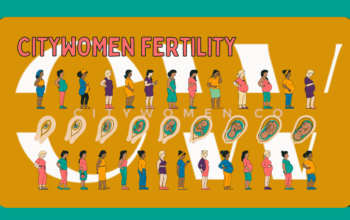
March 16, 2020 at 10:00PM by CWC
I’m absolutely fixated on the daily news right now, so much so that I’m waking up several times in the night to refresh my feed, checking Instagram more often than ever to discover news I might have missed, and playing pretty much an endless stream of podcasts related to COVID-19. My behavior feels healthy to me because information helps me feel empowered. But reading and watching the news causes stress for some people—especially right now.
As those who follow me on social media—and therefore have unwanted exposure to a sudden influx of reposted news through my feed—have pointed out, overexposure can have deleterious effects. For many, it seems, too much news is bad news. In these troubled times, then, is it wise for some—if not most—of us to turn off news alerts, limit access to social media, and just generally minimize exposure to the media?
Avoiding overexposure right now absolutely has the power to reduce unnecessary stress, according to clinical psychologist Aimee Daramus, PsyD. “Things are stressful enough without thinking about it all day,” she says.
Los Angeles-based psychologist Sarah Neustadter, PhD not only agrees but actually says it’s critical to our mental health that we stay away from the news as much as possible. “We don’t need to know about every single death that has happened in our state or in the world,” she says. “We can spend this time however we want; it’s a rich opportunity to stay positive in the face of danger and fear.”
ADVERTISEMENT
ADVERTISEMENTKate Spade Autumn/Winter Sale |
When you do want updates, there are measured ways to get them that may also help reduce the spread of misinformation. “Pick a couple of good sites, including your state or local department of public health, and go directly there for your Coronavirus news,” says Dr. Daramus. “Never share or retweet anything from a site you don’t recognize, and maybe look at a fact-checking site before you share anything.”
From a mental health-standpoint, Dr. Neustadter adds that reading the news is better than watching it. “The format is less invasive,” she says. “Visuals can leave a real impact in our minds.” To avoid both/all, Dr. Neustadter recommends instead enlisting a friend or family member to send critical updates only as necessary, like when there’s a new restriction that needs to be observed.
Since IRL socializing has been massively curbed, Dr. Daramus does not recommend similarly significant social media restrictions, but she does suggest altering the way you use platforms such as Twitter or Instagram. “Social media should be a stress-reliever instead of a stressor,” she says. “Have long phone and text conversations that deepen a relationship, look at funny memes and videos, nerd out with an online role-playing game, look at the videos sent from the Mars rovers, get together with a few friends online and live-tweet your favorite show, etc.”
Dr. Neustadter, meanwhile, is less keen on social media use and advises reaching out via telephone, FaceTime, or even text message to stay connected with the people in your life. In fact, she recommends “doubling down” on checking in with each other for moral support in these lonely times.
As I feel bad about being “that guy” currently flooding peoples’ feeds with news they didn’t ask to see/texting everyone in my life news they didn’t solicit, I asked Dr. Neustadter for any tips on setting boundaries with the people in your life like me. “If you know somebody that’s going to be sending you updates that are unnecessary for you to read, you can just ignore them,” she says. “If you really can’t ignore them, you just have to say, ‘Hey, I appreciate that you’re looking out for me at this time, but I really don’t want to be reading or looking at a lot of news sources right now so please stop sending me links.”
If life under quarantine, however, feels boring enough without having to sacrifice scrolls, text, etc., both pros recommending editing the sites/feeds/people enabled to reach you through notifications or otherwise. “If you love your daily news, maybe look more at tech, entertainment, or general health and wellness news,” says Dr. Daramus. You can also, of course, mute the me’s in your social feeds so you can safely enjoy non cortisol-spiking posts.
Dr. Daramus suggests considering ways in which you might fill your newfound time that could have a better long-term payoff, too. “Turn your attention to work, volunteering online, working out, or anything fun that will take your mind off of it all,” she says. “What have you dreamed of doing? If you’re quarantined or working from home, get online and do it.”
Feeling lonely? Here are some ways to stay connected that don’t involve watching CNN 24/7. Plus, astrologers knew March 2020 would be intense—here’s why.
Author Erin Bunch | Well and Good
Selected by CWC

ADVERTISEMENT
ADVERTISEMENTUp to 30% off Gift Sets |







